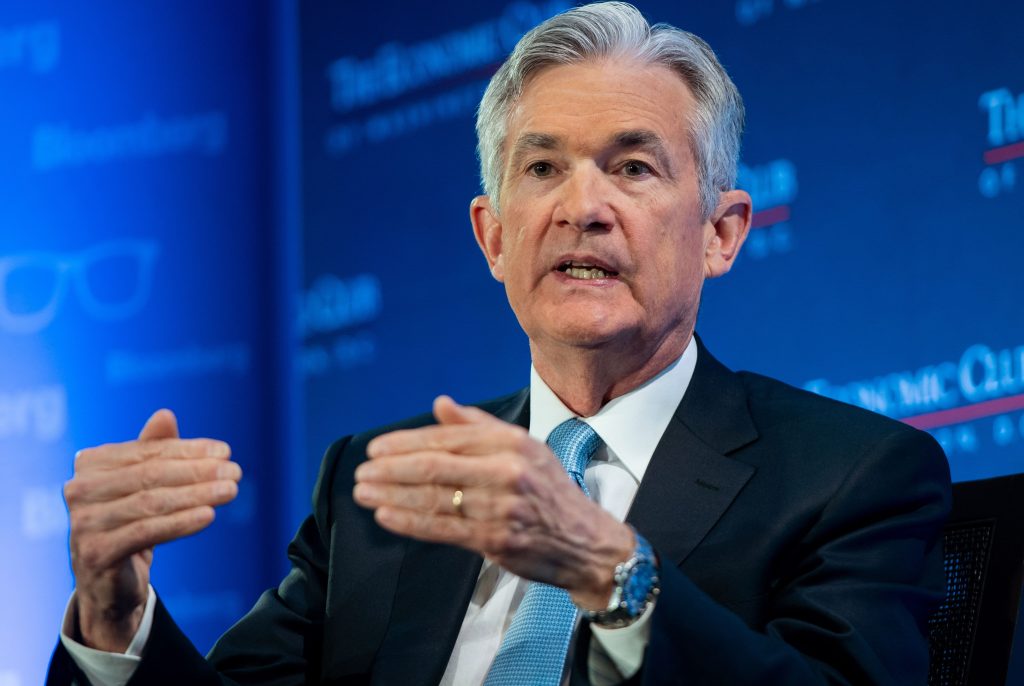
Democratic presidential candidate Joe Biden takes photos with people in the crowd at a campaign event at the Hyatt Park community center on May 4, 2019 in Columbia, South Carolina.
Sean Rayford | Getty Images
In Sept. 2017, with many political analysts still preoccupied by President Donald Trump’s blue-collar base, David Wasserman identified something else: the Democrats’ burgeoning white-collar base.
The Cook Political Report elections expert envisioned the looming 2018 campaign as the “Year of the Angry White College Graduate.” And that’s precisely what the mid-term elections became, handing Democrats control of the House of Representatives.
Now Wasserman is challenging two broadly-accepted understandings of the 2020 presidential race: that Joe Biden’s moderation muddies his chance to lead a left-leaning Democratic Party, while his broad acceptability and blue-collar appeal makes him the strongest Democrat against Trump.
Both notions, he argues, have it backwards: the former Vice President holds a strong position for the nomination race, but less so for a general election. The Democrats best-equipped to beat Trump, he adds, include a young gay man and a young black woman who make party traditionalists nervous.
Biden’s early polling surge has dented skepticism that he can win the Democratic nomination on his third try over three decades. But only slightly.
The case against his chances begins with his 1988 and 2008 campaigns. Neither gained traction.
It continues with his half-century in public life, encompassing various domestic and foreign policy stances at odds with the views of young Democrats today. On trade, the Iraq War, and policy toward the financial industry, Sens. Elizabeth Warren and Bernie Sanders have moved to exploit those vulnerabilities.
The case extends to his age, currently 76, which would make him the oldest president to take the oath of office if he wins. Sen. Amy Klobuchar of Minnesota, gently drawing an age contrast with Biden, calls herself “a candidate for our times.”
But Wasserman notes that the divided Democratic field helps Biden in two ways.
Biden’s strong advantage
Though young liberal activists have gained influence, and visibility on social media, most Democratic voters are over 45 and more moderate. Biden holds a strong initial advantage among them, especially African-Americans, after his eight-year partnership with President Barack Obama.
His advantage is so strong, and the sprawling field so splintered, that Democratic delegate selection rules could give him an additional boost. Candidates must win 15% of the vote to claim delegates from a primary or caucus, which in some cases could shut competitors out.
It’s the general election, Wasserman maintains, that presents more daunting problems. There, the Trump campaign’s aggressive social media operation could use Biden’s past to depress enthusiasm among key constituencies – as Trump and Russian intelligence agents did against Hillary Clinton in 2016.
Six in 10 Americans tell NBC News/Wall Street Journal pollsters they feel uneasy about a candidate of 75. That complicates Biden’s ability to arouse intense support from young and non-white voters, which has become essential to Democratic mobilization.
“Are young, casual Democratic voters going to bring three friends to the polls to vote for Joe Biden as they did for Barack Obama? The answer is probably not,” Wasserman reasons, “In reality, I don’t think he’s one of the more electable Democrats in the race.”
Who is? Ideally, Wasserman reasons, a young mainstream liberal from outside Washington who doesn’t bear the taint of coastal elitism. Even better, someone whose election would shatter a barrier the way Obama’s did.
Historical element needed
“I’m almost to the point where I believe it’ll be necessary for Democrats to have some historical element to their candidate to win,” he says.
His formula discounts chances for Biden but also top rivals such as Sanders, the Democratic socialists from Vermont. Sens. Warren of Massachusetts and Kamala Harris of California, he adds, “probably can’t cut it in the general election because of their elitism.”
Instead, Wasserman likes the general election chances of 37-year-old Pete Buttigieg, mayor of South Bend, Indiana, a former business management consultant, and a Naval Intelligence officer in the Afghanistan war. If elected, Buttigieg would become America’s first gay president.
The same goes for 45-year-old Stacey Abrams, the African-American woman who gained a national following in her losing race for governor of Georgia; she has yet to rule out a 2020 bid. Amy Klobuchar, a self-styled “senator next door” from the Midwest, also fits his bill.
At this stage, such assessments necessarily represent a mix of analysis, speculation and guesswork. Every presidential election presents unique circumstances, which for 2020 include Trump’s precedent-smashing persona and a historically large Democratic field.
Wasserman’s view cuts sharply against current Democratic thinking. But he’s been right before.

